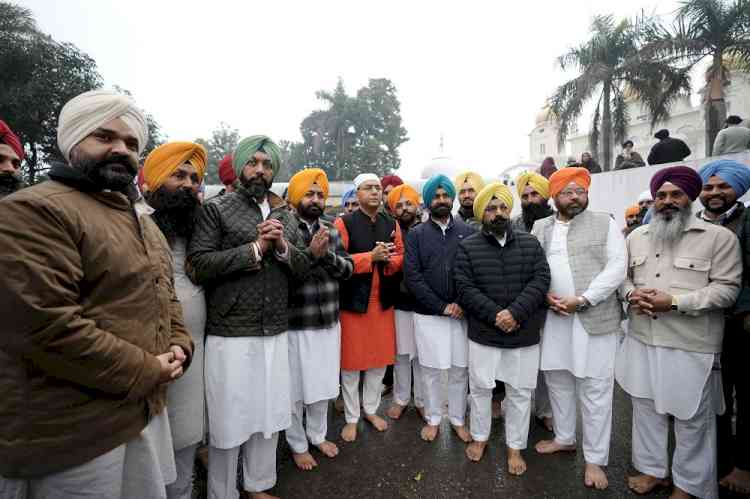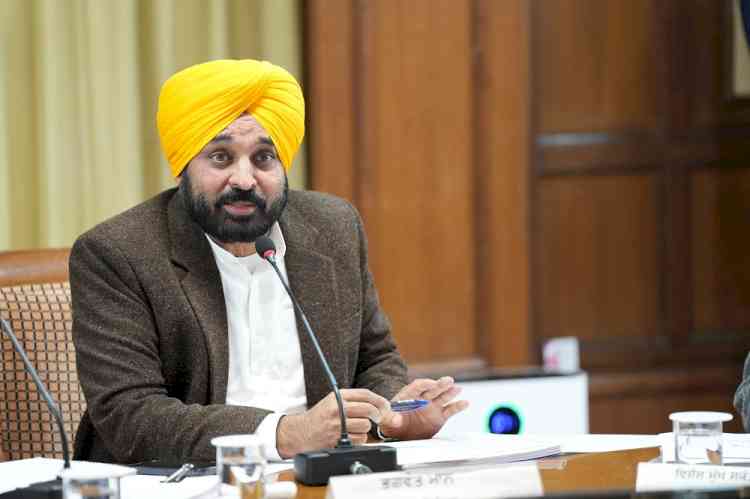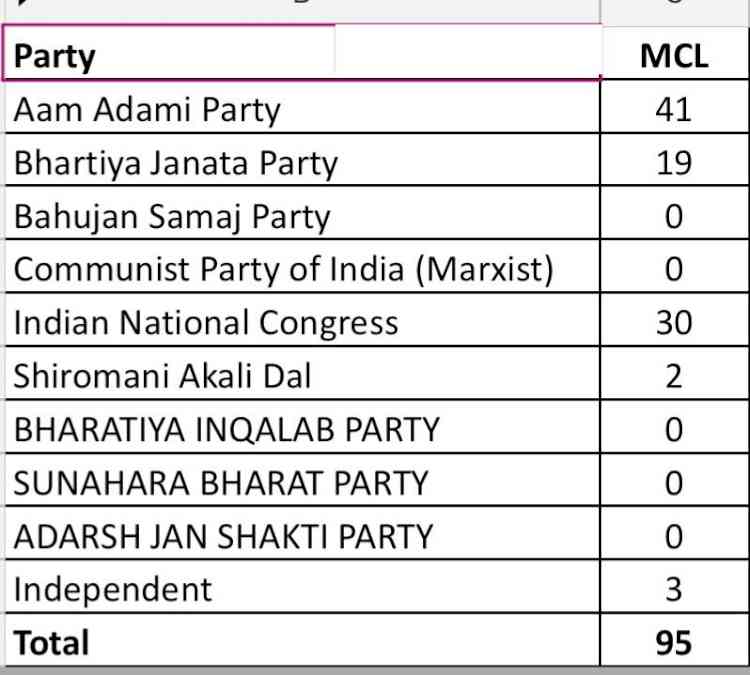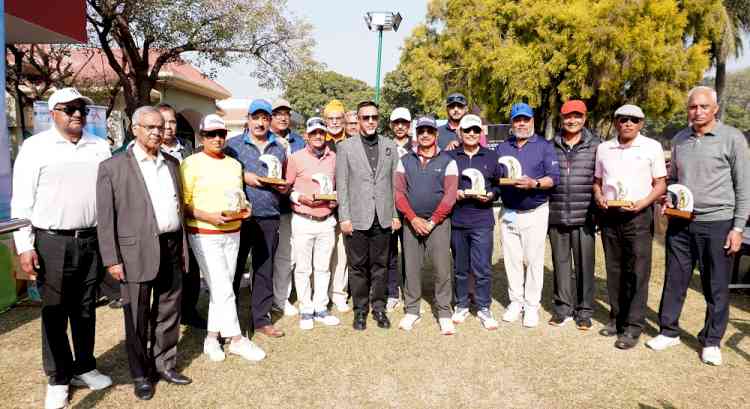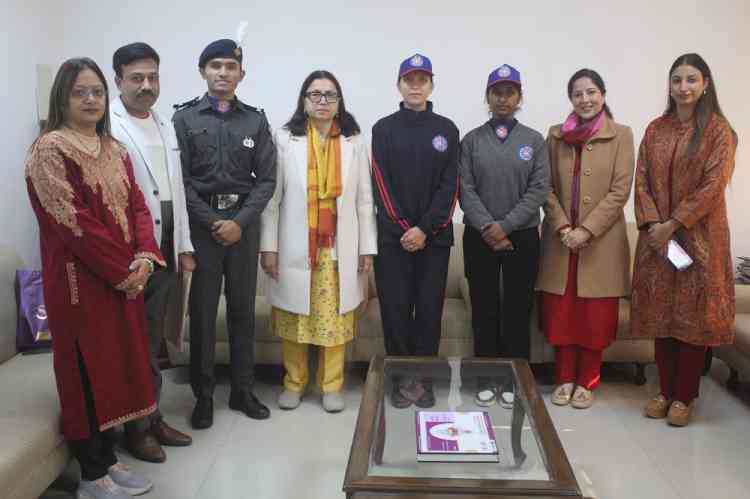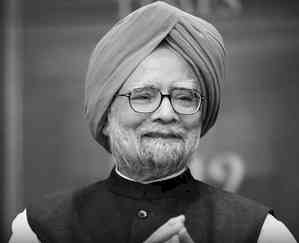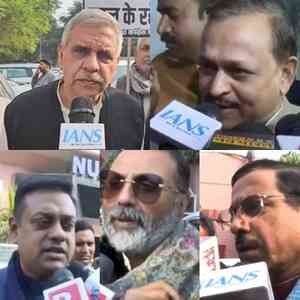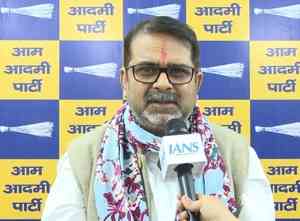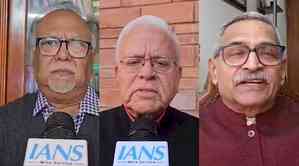Workshop on adoption and implementation of energy efficient technologies in industries
In line with India’s commitment to achieve Net Zero emissions by 2070, Energy Efficiency Services Limited (EESL), International Institute for Energy Conservation (IIEC) and Federation of Indian Chambers of Commerce & Industry (FICCI) organised the workshop with support from Chamber of Industrial & Commercial Undertaking (CICU) aimed to promote the adoption of energy-efficient technologies that can play a key role in decarbonisation and reducing industrial energy costs.
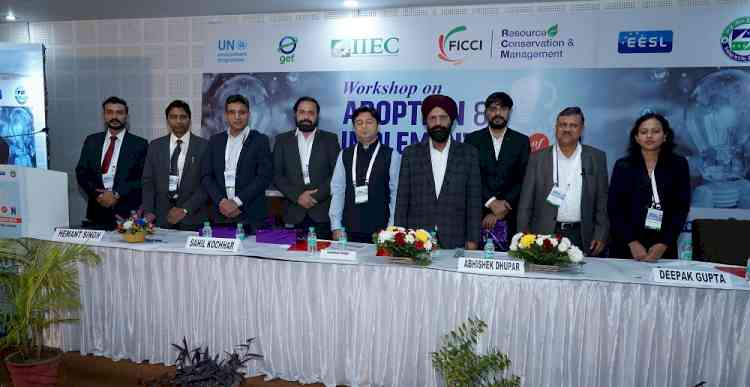
Ludhiana, November 25, 2024: In line with India’s commitment to achieve Net Zero emissions by 2070, Energy Efficiency Services Limited (EESL), International Institute for Energy Conservation (IIEC) and Federation of Indian Chambers of Commerce & Industry (FICCI) organised the workshop with support from Chamber of Industrial & Commercial Undertaking (CICU) aimed to promote the adoption of energy-efficient technologies that can play a key role in decarbonisation and reducing industrial energy costs.
The workshop attracted around 85 participants from designated consumers, large energy-intensive industries, SMEs, technology providers and start-ups, highlighting the significant potential of advanced energy-efficient technologies in cutting operational costs and supporting environmental sustainability goals.
The workshop focused on the energy savings potential of energy-efficient technologies and explored the challenges and opportunities for adopting super-efficient technologies in energy-intensive sectors. It also shared successful case studies of energy-efficient technology implementations across various sectors, and support mechanisms from EESL, energy service companies and technology vendors to accelerate the adoption of such technologies.
In his welcome address, Abhishek Dhupar, Associate Director, IIEC welcomed all participants of this important workshop. He said due to rapid industrialization the demand for energy is increasing. India can enhance energy efficiency in its industries, leading to economic benefits, reduced energy consumption, and a smaller carbon footprint. During today’s workshop we would be hearing from our Technology Providers various success stories of implementation of these EE Technologies and how Industry could benefit in saving their energy & costs.
The workshop was inaugurated by Sanjeev Chawla, Additional Development Commissioner-MSME, MSME-DI Ludhiana & Karnal who emphasised on the need for undertaking energy audits by MSME industries who usually neglect it due to ignorance. The energy audit would bring out the recommendations and suggestions for industries to either retrofit, improve or switch over to a new energy efficient technologies which would lead to substantial saving for individual industry and country as whole.
Kulbir Singh Sandhu, Joint Director, Punjab Energy Development Authority (PEDA) informed participants of PEDA and Government of Punjab Energy Saving & Conservation Schemes. He also informed that PEDA could be approached by any Punjab industry for undertaking energy audits. PEDA has schemes on implementation of projects on Waste to Energy, Biomass, Solar and cogeneration plants.
Girja Shankar, General Manager (Technical) at EESL in his address discussed EESL’s portfolio of 11 energy-efficient technologies, of which 9 have been validated. These include Waste Heat Recovery Systems (WHRS), IE4 motors, heat pumps, and industrial automation, all of which have been instrumental in improving energy performance across various sectors.
In the inaugural session, Surender Kumar Verma, Additional Director of FICCI proposed a formal vote of thanks, who acknowledged the active participation of industry representatives, their partners and other stakeholders in making this workshop successful.
The day-long workshop was concluded by Upkar Singh Ahuja, President, CICU who said that the gaps and challenges of inefficient technologies being used specially in MSMEs could be reduced or eradicated by Awareness Campaigns, Financial Incentives, Capacity Building, Research and Development and bringing Public-Private Partnerships.


 City Air News
City Air News 

